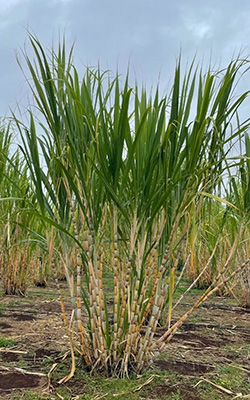Why Walking Cane Sugar Handling Chemicals Are Essential for Modern Sugar Refining
The function of walking stick sugar handling chemicals in modern sugar refining can not be overstated, as they are important to boosting both the efficiency of removal and the overall quality of the final product. Agents such as phosphoric acid and particular flocculants are utilized to get rid of contaminations, causing sugar that not just fulfills consumer assumptions yet additionally sticks to sector standards. The ramifications of these chemicals prolong beyond high quality, touching upon market characteristics and environmental considerations. sugar and cane. This elevates vital questions regarding the sustainability of such methods and their impact on the future of sugar manufacturing.
Function of Processing Chemicals
The efficiency of walking cane sugar handling hinges dramatically on the strategic application of processing chemicals. These chemicals play an essential duty in improving the effectiveness and high quality of sugar extraction and refining. From the preliminary phases of juice extraction to the last purification actions, processing chemicals help with numerous essential procedures.
In the removal stage, chemicals such as phosphoric acid and calcium hydroxide are utilized to maximize the information procedure, aiding to eliminate contaminations and suspended solids from the walking stick juice. This not just enhances the return but likewise guarantees the clarity of the end product. Additionally, agents like flocculants help in the rapid settling of pollutants, consequently enhancing the overall procedure.
As the handling advancements, chemicals are utilized in decolorization and formation stages. Activated carbon and ion exchange resins serve to get rid of shade and smell, ensuring that the refined sugar satisfies consumer top quality requirements. Eventually, the role of handling chemicals prolongs beyond functional performance; they dramatically impact the sensory features of the last item, adding to market competitiveness. Hence, the meticulous selection and application of these chemicals are important for accomplishing optimal results in walking cane sugar handling.
Key Types of Chemicals
Cane sugar handling counts on a range of crucial chemicals that promote each phase of production. These chemicals play essential functions in making clear, lightening, and detoxifying the sugar removed from walking cane.
One main group of chemicals consists of flocculants, such as polyacrylamide, which aid in the explanation procedure by advertising the aggregation and settling of impurities. In addition, calcium hydroxide is often used to counteract acidity and assist in the elimination of non-sugar elements.
Whitening agents, such as triggered carbon and sulfur dioxide, are utilized to decolorize the syrup, resulting in a more clear end product. These chemicals assist get rid of color compounds that might affect the sugar's look and marketability.
Moreover, phosphoric acid acts as a pH regulator throughout the processing phases, ensuring optimum problems for the enzymatic activities associated with sugar removal and purification.
Other important agents include edta (ethylenediaminetetraacetic acid), which chelates metal ions that could catalyze unfavorable reactions, and sodium hydroxide, which helps in pH control throughout the refining procedure. Collectively, these chemicals boost efficiency and make sure a premium walking stick sugar product.
Advantages for Sugar High Quality
Often forgotten, using details processing chemicals dramatically improves the overall high quality of walking stick sugar. These chemicals play a critical duty in refining processes, ensuring that the end product fulfills strict sector requirements for pureness and preference.

Furthermore, processing chemicals assist in accomplishing a consistent granulation and structure, which are important for consumer acceptance. By managing the formation procedure, these chemicals informative post guarantee that the sugar crystals create consistently, bring about a much more enticing product that dissolves well in numerous applications.
Additionally, making use of these chemicals can enhance the life span of cane sugar by lessening moisture absorption and microbial growth. In general, the critical application of handling chemicals is vital for providing premium walking stick sugar that meets consumer assumptions and industry needs.
Ecological Impact Factors To Consider

Additionally, the energy-intensive nature of sugar refining, compounded by chemical use, commonly leads to boosted carbon exhausts. This adds to climate change and raises issues pertaining to the sustainability of existing refining methods. Furthermore, the sourcing of these chemicals might include techniques that intimidate biodiversity, such as monoculture farming, which decreases the resilience of farming communities.

To reduce these effects, sugar refiners are progressively checking out lasting options and taking on ideal methods that decrease chemical usage. Applying strenuous environmental management systems can aid make certain that the refining procedure lines up with ecological standards and advertises biodiversity. Eventually, a well balanced approach that focuses on both sugar top quality and environmental stewardship is necessary for the long-lasting feasibility of the sugar industry.
Future Fads in Refining
As the sugar market comes to grips with the environmental obstacles related to conventional refining techniques, innovative methods are emerging to boost both efficiency and sustainability. One substantial fad is the fostering of environment-friendly chemistry principles, which prioritize making use of safe, eco-friendly handling chemicals. This shift not only decreases ecological impact however also addresses customer need for cleaner manufacturing approaches.
An additional encouraging development is the execution of advanced filtration innovations, such as membrane separation and adsorption procedures. These strategies improve the quality and quality of the sugar while minimizing the quantity of wastewater generated during refining. Furthermore, the integration of electronic technologies, including IoT and AI, is transforming operational efficiency by enabling real-time tracking and predictive maintenance, thus lessening resource waste.
In addition, using spin-offs from sugar refining, such as bagasse and molasses, is acquiring traction. These products can be transformed right into biofuels or value-added products, adding to a circular economy within the market. Collectively, these patterns signify a shift in the direction of even more lasting techniques that not only improve operational efficiency but additionally line see here up with worldwide sustainability goals, making sure the future practicality of sugar refining.
Final Thought
Cane sugar processing chemicals are essential in modern-day web link sugar refining, dramatically improving the performance and quality of sugar extraction. The tactical usage of these chemicals not only boosts the purity and taste of the last product but also makes certain regular crystallization and texture. As the industry progressively prioritizes sustainability, the fostering of environmentally-friendly processing agents is most likely to shape future trends in refining, inevitably leading to higher top quality products and extended life span for customers.

Eventually, a balanced technique that prioritizes both sugar high quality and environmental stewardship is crucial for the long-lasting practicality of the sugar sector.
Walking cane sugar handling chemicals are important in modern sugar refining, significantly improving the effectiveness and high quality of sugar extraction.